According to various studies, black women around the globe have the poorest outcome and the shortest survival rates from cancer (1). While there are different theories as to why black women’s cancer statistics are so shocking, one of the most prominent ones is the use of beauty products. In fact, over the years, researchers have suggested that haircare and skincare products specifically catered to black women may be slowly harming their health, all while making them look good.
Toxic (Black) Beauty Standards
According to the Environmental Working Group, one in 12 beauty and personal care products marketed to black women in the US were found to contain highly hazardous ingredients such as lye, parabens, and formaldehyde-releasing preservatives. What’s more, the EWG also found that less than 25% of products meant for black women scored low in an assessment of their potentially hazardous ingredients, compared to the 40% of low-risk products marketed to the public.
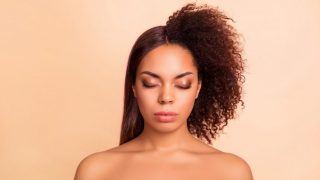
Roman Samborskyi/Shutterstock
Unfortunately, even in a society that claims to encourage individuality and self-love, black women still face some form of discrimination. Whether it’s because of their hair, their style, or their skin tone.
As such, many black women have turned to beauty products in an effort to assimilate better into society’s expectations. While there’s nothing wrong with this, a lot of the products that they choose have proven to be detrimental to their health.
For instance, skin lightening products are a common purchase amongst black women who are looking to lighten their skin (the skin lightening products market is expected to reach USD 13.7 billion by 2025). Unfortunately, many of these products contain toxic ingredients that can not only lead to skin cancer, but also increase the risk of liver and kidney damage (2).
Additionally, while the natural hair movement has gained momentum in recent years, many women still opt to relax their hair. Now while this is perfectly fine, some of the hair relaxers that they use may have adverse health effects. In fact, a new study has found that some of these relaxers may actually be increasing their risk of cancer.
Are Black Women’s Hair Products Causing Cancer?
A Boston University research team found a strong link between the frequent and long-term use of lye-based relaxers and the increased risk of breast cancer among black women, compared with more moderate use. 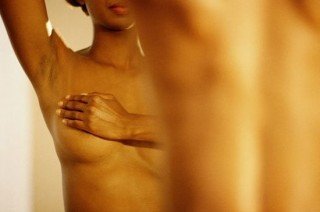
The study, published in Carcinogenesis, used data from Boston University’s Black Women’s Health Study, which followed 59 000 self-identified African American women for over 25 years.
The researchers observed their medical diagnoses and any factors that could influence their health. With this, they compared breast cancer among women who reported moderate or heavy use of hair relaxers to those who reported little or no use of the products.
The results?
“Black women who used hair products containing lye at least seven times a year for 15 or more years had an approximately 30% increased risk of estrogen receptor positive breast cancer compared with more infrequent users.”
So hair relaxers cause cancer?
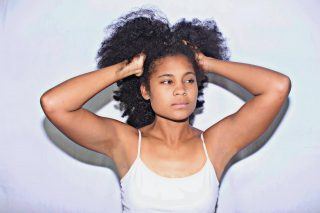
Photo by Dushane white on Unsplash
The study once again emphasized the health hazards that some products marketed towards black women can cause. However, the study’s co-author Dr. Kimberly Bertrand reminds us that the study cannot definitively prove that hair relaxers cause cancer.
“Because the Black Women’s Health Study did not have information on specific brands of hair relaxers, my team and I could not determine which specific ingredients might be most relevant for breast cancer risk. In addition, because we asked about hair relaxer use before 1997, the results of this study may not apply to products on the market today.” she writes in The Conversation,
“Though our findings suggest a link between the use of certain types of hair relaxers and breast cancer, epidemiologic studies such as this one cannot definitively prove that hair relaxers cause breast cancer. Additional research is needed, especially on currently available products.”
What has previous research found?
Dr. Bertrand’s study isn’t the first to find a link between black women’s hair products and cancer.
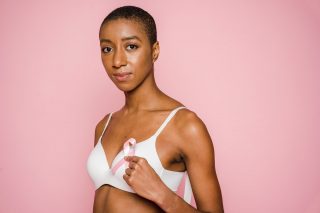
Photo by Klaus Nielsen from Pexels
- A 2019 study published in the International Journal of Cancer found that African-American women who used permanent hair dye were 45% more likely to develop breast cancer than black women, who did not — 60% if they reapplied the dye every 5 to 8 weeks. White women’s risk increased by 8%.
- A 2018 study published in Environmental Research found that 80% of the 18 popular black hair products that were tested contained endocrine disruptors that are linked to weight gain, asthma, cancer, birth defects, and reproductive disorders.
How else can black women straighten their hair?
Hair relaxers aren’t the only way that black women can straighten their hair. In fact, there are plenty of other ways black women can achieve that straight style. These include:
Keratin treatments
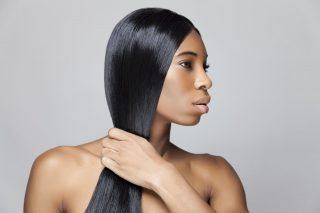
And-One/Shutterstock
Keratin treatments are essentially protein treatments that help to combat any frizz while maintaining your natural curls. With the keratin treatment, the extra dose of protein helps to seal in cuticles, leaving your hair soft and shiny. It’s important that you visit a reputable salon when doing keratin treatments
No-lye relaxers
If you’re too big a fan of relaxers, then it’s important to choose relaxers that are free of lye. The SoftSheen Carson Care Defy Breakage No-Lye Relaxer isn’t just free of lye, but it also contains ceramides, which allows it to moisturize as well as straighten your hair.
Use a straightener
This is a pretty straightforward approach to getting straightened locks. However, as black hair is sensitive to heat, it’s important to use a heat protectant when straightening your hair. The L’Oreal Paris Sleek IT Iron Straight Heatspray not only protects your hair from heat damage, but also helps to lock in shine.
The future of black haircare
Unfortunately, black women do face pressure to follow the largely Eurocentric standards of beauty. However, meeting these standards does not have to come at a risk to their health. It’s important that companies, advertisers, and other leading health bodies do their part to keep black female consumers safe and healthy.
![unexplored african [longevity live]](https://longevitylive.com/wp-content/uploads/2019/02/accessories-afro-beautiful-935985-320x214.jpg)
Photo by nappy from Pexels
References
Bahnassy, A. A., Abdellateif, M. S., & Zekri, A. N. (2020). Cancer in Africa: Is It a Genetic or Environmental Health Problem?. Frontiers in oncology, 10, 604214. https://doi.org/10.3389/fonc.2020.604214
Eberle, C. E., Sandler, D. P., Taylor, K. W., & White, A. J. (2020). Hair dye and chemical straightener use and breast cancer risk in a large US population of black and white women. International journal of cancer, 147(2), 383–391. https://doi.org/10.1002/ijc.32738
Helm, J. S., Nishioka, M., Brody, J. G., Rudel, R. A., & Dodson, R. E. (2018). Measurement of endocrine disrupting and asthma-associated chemicals in hair products used by Black women. Environmental research, 165, 448–458. https://doi.org/10.1016/j.envres.2018.03.030
Main Image Source: Rebecca Tsotsoo Kwei/BBC


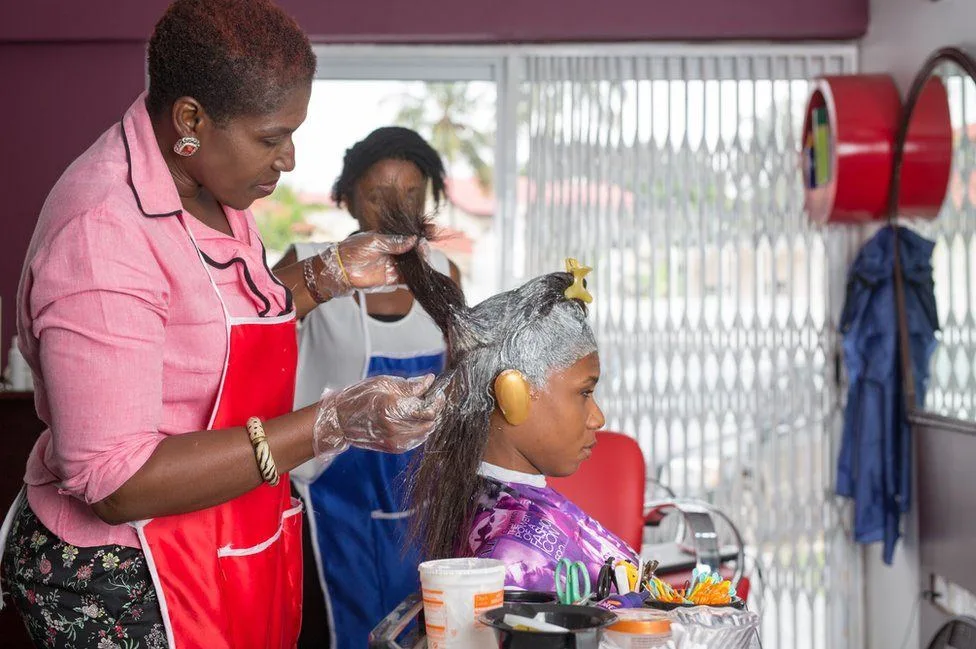
![women [longevity live]](https://longevitylive.com/wp-content/uploads/2020/01/photo-of-women-walking-down-the-street-1116984-100x100.jpg)










